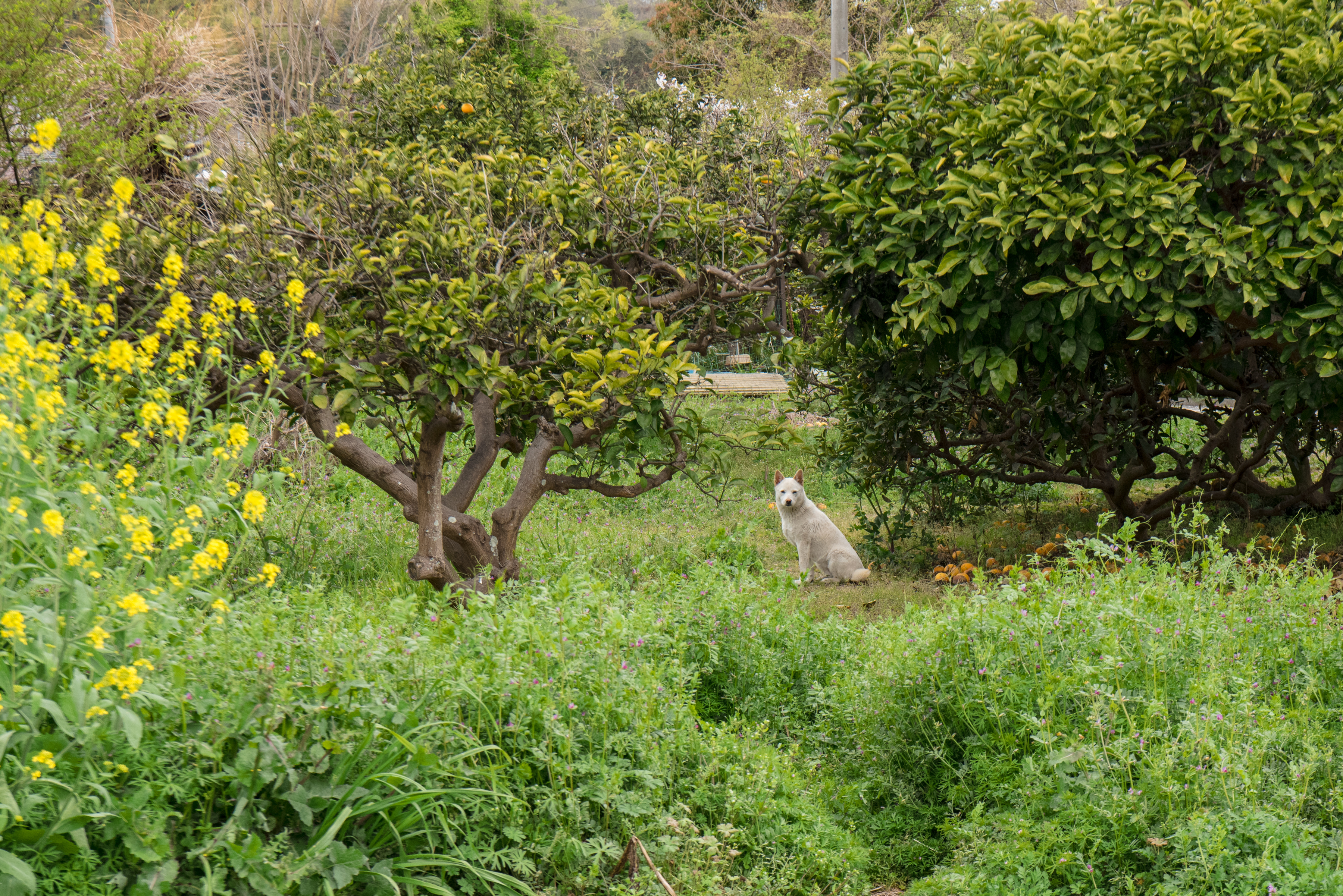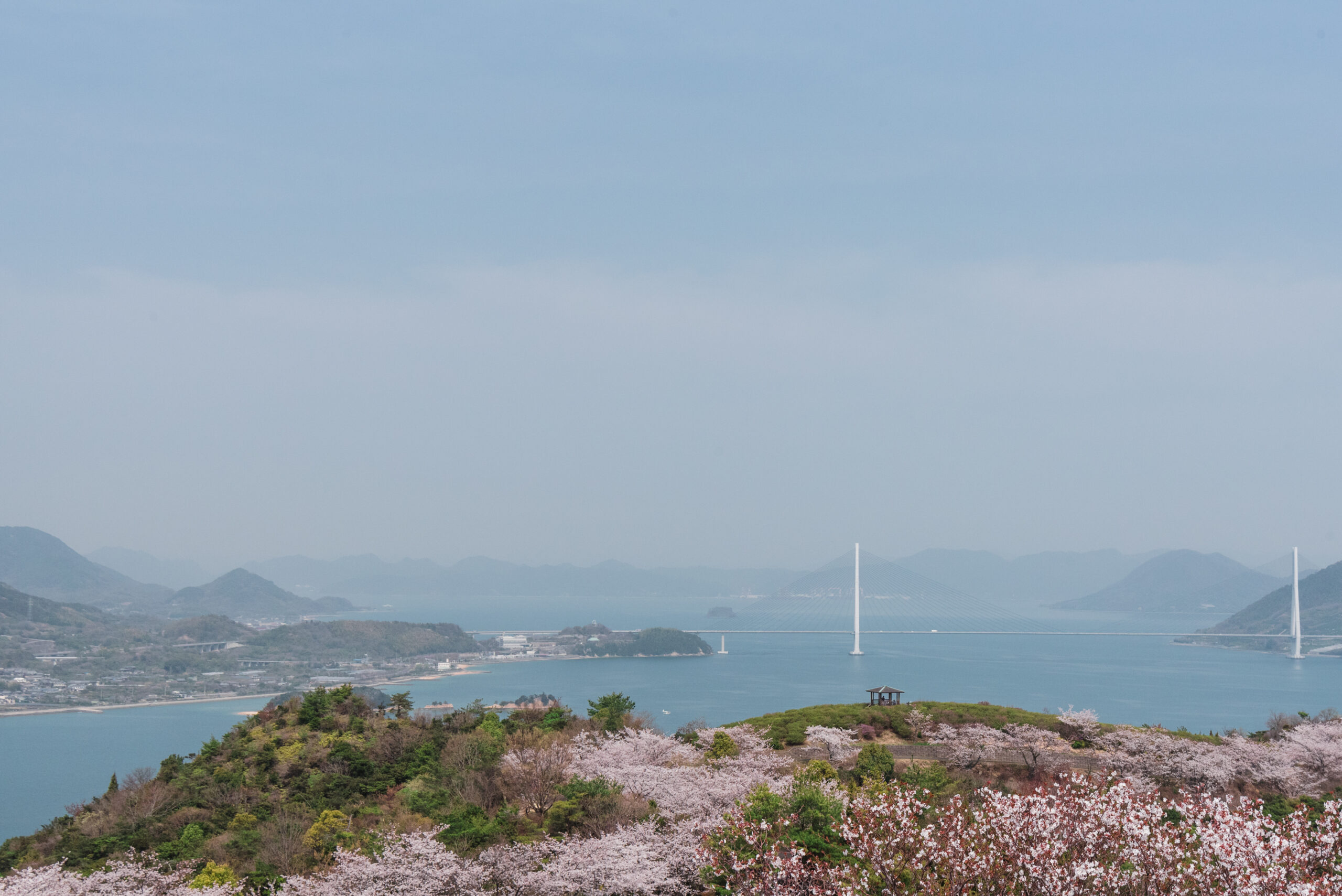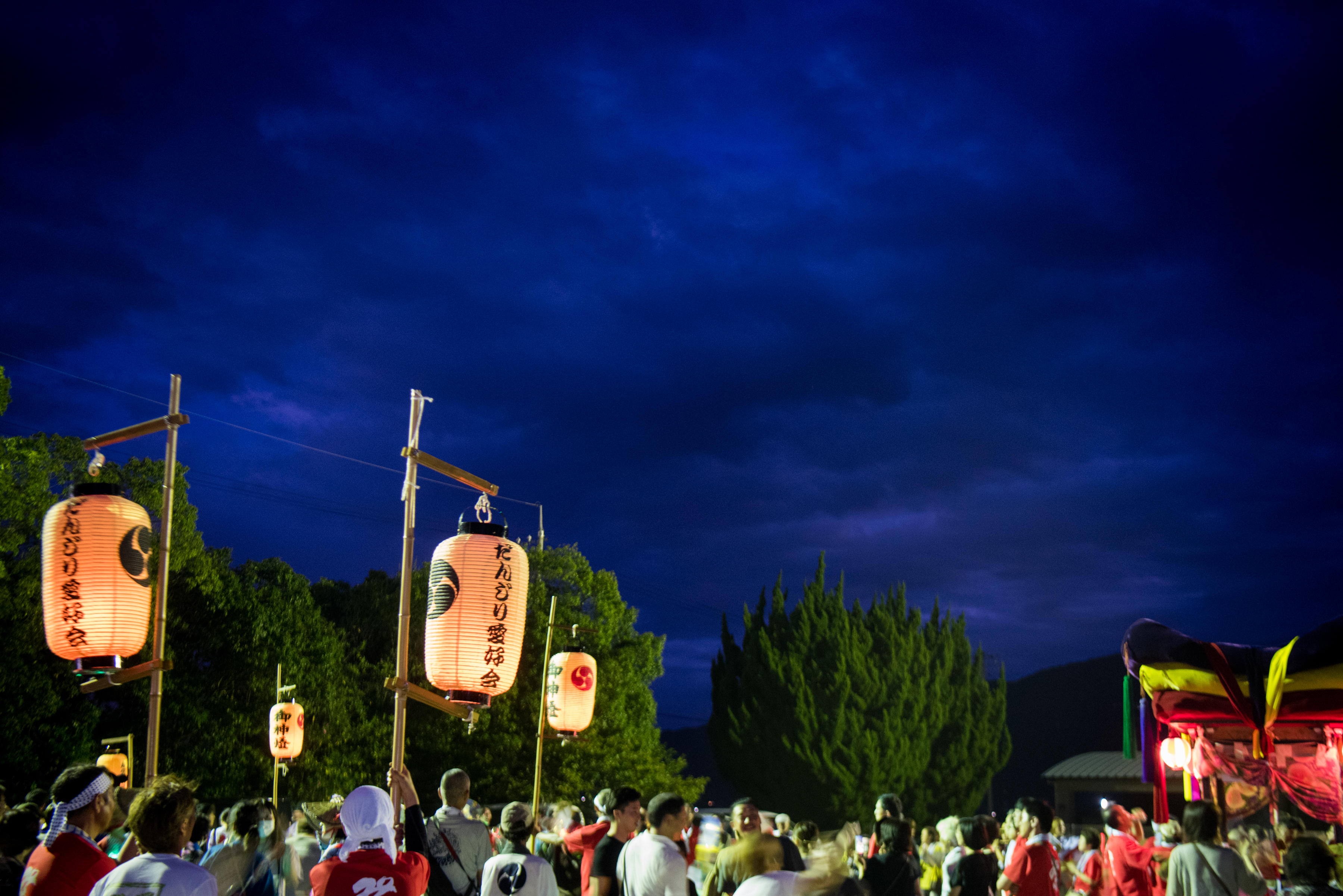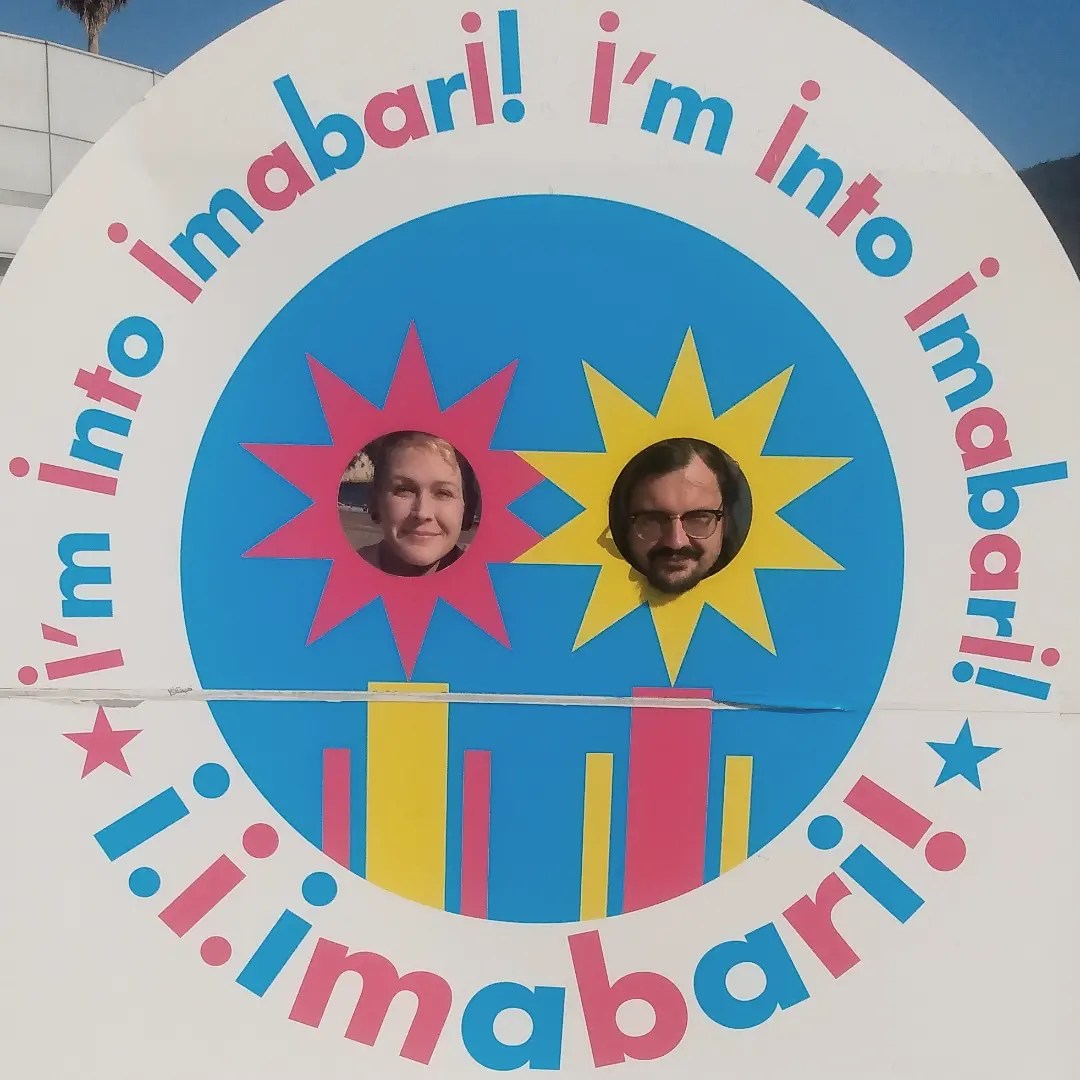I’m willing to bet that “Japan” and “street dogs” are not necessarily two words you thought would go together. But as we quickly discovered upon moving to rural Ōmishima island, there are a lot of dogs living in both rural and urban areas. Some locals have said with confidence that the ‘norainu’ street dogs, and the ‘inoshishi’ wild boar, far outnumber the people on the island. When considering there’s a regular cast of characters ranging from one to seven street dogs at any given time, just in the few block radius around our house, I absolutely believe it.
The three dogs who live permanently in the citrus orchard behind our house have been named “Golden Mama”, her puppy “Little White One”, and what seems to be a lesser-than-alpha male “Grey Spot”. I thought initially, sure, we can catch three dogs to get them spayed and neutered. But as time progresses, more and more dogs make themselves known. It seems that there are just countless dogs living in the forest, and for whatever reason, perhaps shifting territory disputes, some of them come down into the populated areas, temporarily or permanently. Two of the infrequent dogs have become frequent enough guests that they’ve been nicknamed “Big Coyote” and “Big White One”.
“Little White One” very rarely leaves the boundary of the citrus orchard ⌄


My initial reaction was to make a joke about how our time living in Mexico prepared me for this situation. But in reality, it’s absolutely overwhelming when I think about trying to help. I’ve always been active with animal rescues and volunteer work in the US. But I have yet to find some of the kinds of resources I’m accustomed to in the US and Mexico, such as discount or free spay and neuter events. So while we hope to make “Golden Mama” and “Little White One” our pets, we’re also planning to do catch and release spay and neutering for the rest of the dogs, but we’re looking at a cost of ¥15-25,000 (about $125-200) each, just to get them fixed.
Fortunately, most of the street dogs seem visibly to be in good health, just fairly itchy. The only exception so far is “Big White One”, who seems to have two injured or infected eyes. Poor guy.
We’re doing our best to keep food and water available to them at all times. This may seem small, but considering we haven’t been able to get utilities (including water) turned on to our house yet, even this has been a little challenging. Each day that we work to remodel our abandoned house, we’re also spending time earning the trust of these dogs. This involves spending time on the edge of the citrus orchard, feeding them, and also coaxing them a short distance down the road to our house. Slowly but surely, they’re understanding that we are friends, or at least food dispensers. “Golden Mama” has been found sleeping in our side yard, and has even approached our open doorway on a rainy day.
To quote the friendly people on Ōmishima, who often say this phrase in reference to the amount of work needed on our house: “Bochi bochi”. It means little by little.
Our YouTube video introducing the local ‘norainu’ street dog pack ⌄
Thanks for reading,
Dani & Evan Benton





